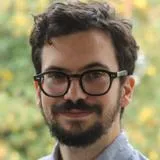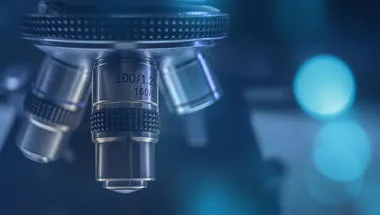
Biography
Dr Stefano Bo joined King’s College London in January 2023 in the Biological Physics and Soft Matter group. He earned his Ph.D. from the University of Turin, Italy in 2015. He was then a Nordita Fellow at the Nordic Institute for Theoretical Physics (NORDITA) in Stockholm, Sweden, and from 2019 a PKS Distinguished Post-Doctoral Fellow at the Max-Planck Institute for the Physics of Complex Systems in Dresden, Germany.
Research
Stefano is fascinated by randomness, how it impacts living systems, and the strategies to cope with it and exploit it. The main questions driving their research are: How do living systems deal with fluctuations without being overwhelmed by them? How do cells manage to employ their stochastic machinery to process noisy signals and nonetheless perform tasks reliably? How much does this cost them? How can we exploit fluctuations to design efficient microscopic engines? More concretely they're currently focusing on two main projects.
Dynamics and thermodynamics of single molecules in Biomolecular condensates (aka membrane-less organelles). Biomolecular condensates locally up-concentrate proteins and nucleic acids, without needing a membrane to segregate them from the cytoplasm. This is an effective way to spatially organize the internal structure of the cell. Growing evidence suggests that phase separation provides a mechanism to form these condensates. They are interested in how the physics of phase separation governs the statistics of individual molecules and in how it influences the propagation of noise originating at small scales to larger scales.
They also develop and apply machine learning techniques to extract physical information from stochastic time series, such as the ones obtained by tracking individual molecules. they have seen that recurrent neural networks are a great tool when dealing with short noisy trajectories. They are now working to understand why, with the long-term aim of learning new ways to study stochastic trajectories.
Further information
Recent publications:
-
Lier R., Armas J., Bo S., Duclut C., Jülicher F. and, Surówka P. “Passive odd viscoelasticity” Phys. Rev. E 105, 054607 (2022).
-
Bo S., Hubatsch L., Bauermann J., Weber C.A., and Jülicher F. “Stochastic dynamics of single molecules across phase boundaries.” Phys. Rev. Res. 3, 043150 (2021).
-
Hubatsch L., Jawerth L.M., Love C., Bauermann J., Tang T.-Y.D., Bo S., Hyman A.A. and Weber C.A. “Quantitative Theory for the Diffusive Dynamics of Liquid Condensates”; eLife 2021;10:e68620 (2021).
-
Muñoz-Gil G. et al “Objective comparison of methods to decode anomalous diffusion” Nat. Commun. 12, 6253 (2021).
-
Argun A., Volpe G. and Bo S. “Classification, inference, and segmentation of anomalous diffusion with recurrent neural networks” J. Phys. A 54 294003 (2021).
-
Dabelow L., Bo S., and Eichhorn R. “How irreversible are steady-state trajectories of a trapped active particle?”. J. Stat. Mech., P 033216 (2021).
Research

Biological Physics & Soft Matter
The Biological Physics and Soft Matter group aims to use bespoke technology and analytical methods borrowed from the Physical Sciences to address important fundamental questions in Biology.
Features
Meet our new researchers from the Department of Physics
We interview some of our researchers who started this academic year.

Research

Biological Physics & Soft Matter
The Biological Physics and Soft Matter group aims to use bespoke technology and analytical methods borrowed from the Physical Sciences to address important fundamental questions in Biology.
Features
Meet our new researchers from the Department of Physics
We interview some of our researchers who started this academic year.

